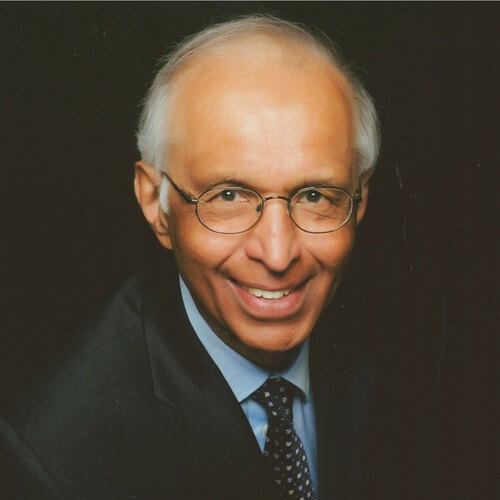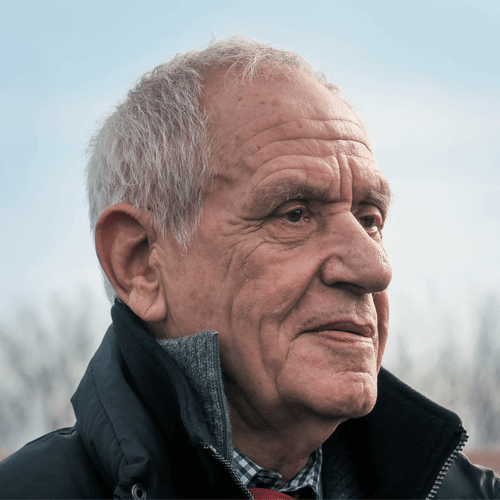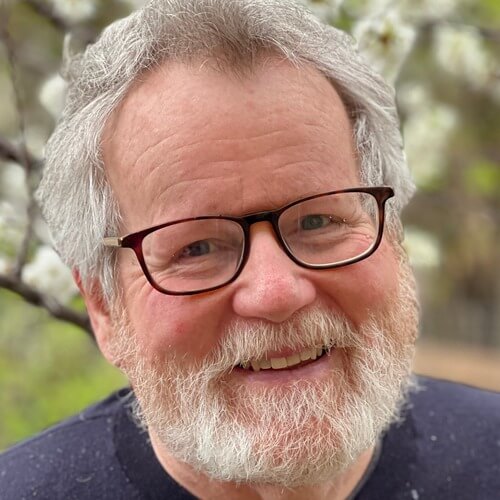Distinguished AU alum and philanthropist Esmail Bharwani and renowned architect Douglas Cardinal will receive honorary degrees. Professor emeritus Dr. Mike Gismondi will be inducted into the Order of Athabasca University
Athabasca University (AU) will recognize the outstanding contributions of three members of the community at Convocation 2024.
AU will grant Honorary Doctor of Laws degrees to two extraordinary people at convocation on June 19 and 20: distinguished alum and philanthropist Esmail Bharwani (Bachelor of Administration '92) and architect Douglas Cardinal. The honorary Doctor of Laws degree recognizes exceptional public service and is among the highest honours that AU bestows.
Dr. Mike Gismondi, AU professor emeritus and co-founder of the Synergia Co-operative Institute, will be inducted into the Order of Athabasca University on June 20. The Order of AU is bestowed upon individuals who have rendered exemplary service to AU, the community, or society while representing the university.
Transforming countless lives through education

Bharwani's contributions to post-secondary education in Alberta will last for generations.
Through the Esmail Safana Farzana Fayaz Bharwani Foundation, he and his family have supported endowments that help countless students to improve their lives through education—in the same way he did.
As a young man in Tanzania, Bharwani took whatever jobs he could to support his parents and siblings while he saved what he could for his own education. He saved enough to pursue an accounting designation in England but nearly had to leave the program until his instructor helped him to get a job that allowed him to finish his education. That experience inspired a lifelong drive to help others.
"As I met more students in Tanzania, Kenya, England, Scotland, and Canada, I noticed a great appetite from others who sought education but who were held back because of lack of money," he said. "Learning from my own example of achievements, I quickly realized that to improve the quality of life of people, they needed to be educated and not all are fortunate enough to have the necessary resources."
Design inspired by natural world, Indigenous culture

Cardinal is a legendary fixture in the field of architecture and Indigenous human rights. His life's work has been to create deeply personal buildings inspired by the natural world and Indigenous culture.
Born in Calgary, Cardinal drew early inspiration from natural features in the varied landscape of southern Alberta. The curvaceous, non-linear style he developed is evident in his work, including many prominent designs across Canada that draw inspiration from the natural world: Northwestern Polytechnic in Grande Prairie, TELUS World of Science in Edmonton, St. Albert Place, the Canadian Museum of History in Ottawa, First Nations University in Regina, the National Museum of the American Indian in Washington, D.C., and many others.
That connection to the natural world is a fundamental part of Cardinal's design philosophy.
"As a child, I was taught to respect all life around me," he said. "As a planner and architect, I strive to follow these teachings to create a better future for the next generations, so we learn to live in harmony and balance with this amazing blue planet, our Mother, the Earth."
Tireless support of education, community, society

Although Gismondi retired from his role as professor of sociology and global studies at AU in 2020, his contributions to higher education continue.
He cofounded the Synergia Co-operative Institute, which offers the free, open, online course, Toward Co-operative Commonwealth: Transition in a Perilous Century, now in its sixth offering. This accomplishment builds on his many contributions to AU during his three decades as professor in the Faculty of Humanities and Social Sciences, including founding the Master of Arts in Integrated Studies (MAIS) program.
As a longtime resident of Athabasca, Gismondi has also made invaluable contributions to the community, including as an activist and as a town councillor, a role he held for nearly a decade. He currently works in several volunteer roles in the community, continuing to believe in mutual aid and collective empowerment.
"Who you meet will bring you as far as the degrees you earn. I came to AU on a friend's call, then I fought a pulp mill, taught green practices in Asia and Latin America, started a global educational co-op and the MAIS program, interpreted Athabasca heritage, sat on town council, and on," he said. "May public engagement and social responsibility guide you."
Thank you to the honorary degree and awards selection committee for their support and diverse perspectives in selecting this year's recipients.